- Home
- Gustave Aimard
The Guide of the Desert Page 3
The Guide of the Desert Read online
Page 3
CHAPTER III.
THE RANCHO.
On the morrow, at the rising of the sun I was up, but early as I hadbeen, my companion was before me: his place near me was empty.
I went out hoping to meet him, but could not see him.
The country around me was deserted and calm as on the day of thecreation; the dogs, vigilant sentinels, who during the night hadwatched over our repose, rose and came to caress me with joyful growls.The aspect of the pampa[1] is the most picturesque at the rising ofthe sun. A profound silence reigns over the desert; it would seem thatnature gathers and resumes her powers at the dawn of the day whichis commencing. The fresh morning breeze flutters gently through thetall grass, which it bends by its light and cadenced movements. Hereand there the venados raise their timid heads, and throw around themfrightened glances. The birds, crouched for warmth under the foliage,prelude with some timorous notes their morning hymn. On the littleheaps of sand formed by the holes of the viscachas, little belatedowls, stationary as sentinels, and half-asleep, winked their eyes inthe rays of the morning star, sinking their round heads in the feathersof their necks; whilst, high up in the air the urubus and the caracaraswheel in large circles, balancing themselves carelessly at their easeon their wings, and seeking the prey on which they will fall with therapidity of a thunderbolt.
The pampa at this moment resembles a sea with its green and calmwaters, the shores of which are hidden behind the horizon.
I sat down on a green mound; while smoking a cigarette I fell intoreflection, and was soon completely absorbed by my thoughts.
I was suddenly aroused, however, by a voice which burst upon me in atone of good humour. I turned round sharply.
Don Torribio was near me.
"Hola, caballero!" he said, "The pampa is beautiful at the rising ofthe sun, is it not?"
"It is indeed," I answered, without knowing exactly what I said.
"Have you passed a good night?"
"Excellent; thanks to your generous hospitality."
"Do not let us speak of that. I have done what I could; unfortunately,the reception has been poor enough. Times are hard. Only four or fiveyears ago it would have been different; but from him who does all hecan, people cannot ask more."
"I am far from complaining--on the contrary. But you are returning froma walk, it seems to me?"
"Yes, I have been to give an eye to my oxen which are at pasture. But,"added he, raising his eyes to the sky and mentally calculating theheight of the sun, "it is time to breakfast. Will you return with me?"
"I do not ask anything better; only I do not see my companion. Itappears to me that it would ill become me not to wait breakfast forhim."
"If that is all that hinders you," said the gaucho, laughing, "you caneat without fear."
"He is about to return?" I asked.
"On the contrary, he will not return."
"How is that?" I cried with surprise, mingled with uneasiness; "He isgone away?"
"Already more than three hours ago. But," he added, "we shall see himagain soon; he wished to speak to you about it before mounting hishorse; but, on reflecting on it, you appeared so fatigued yesterdayevening that he preferred to allow you to sleep--sleep is so good."
"He will return without doubt, soon?"
"I cannot say so exactly. In any case he will not long delay; we shallsee him again this evening or tomorrow."
"The devil! What am I to do, I who reckoned on him?"
"How is that?"
"Why, to tell me the route I ought to take."
"If that is all, there is no reason why you should torment yourself; hehas requested me to beg you not to quit the rancho before his return."
"But I fear to discommode you. You are not rich, as you yourself havetold me."
"Senor," answered the gaucho, with dignity, "strangers are envoys fromGod. Even if it might please you to live a month in my humble rancho, Ishould be happy and proud of your presence in my family. Do not say anymore, I beg you."
What more could I object? Nothing. I resigned myself, therefore, towait until the return of don Zeno.
The breakfast was pleasant enough; the ladies exerted themselves tobring out my good humour, by loading me with cares and attentions.
Immediately after the meal, as don Torribio prepared to mount hishorse, I asked to accompany him. He agreed; I saddled my horse and weset out at a gallop across the pampa.
My design in accompanying the gaucho was not to have an agreeableride, but to take advantage of our being together alone, to lead theconversation to my companion, whom he appeared to know very well, so asto obtain certain information which would enable me to form an opinionon that singular man.
But all my efforts were vain, all my finesse absolutely lost; thegaucho knew nothing, or, which is more probable, did not wish to tellme anything. The man who was so communicative, and so inclined torelate, often in a too prolix fashion, his own affairs, preserved adiscretion proof against everything, and a reticence which made medespair when I turned the conversation to don Zeno Cabral.
He answered me only by monosyllables, or by the exclamation, "?Quiensabe?" (Who knows?).
Wearied with my efforts, I gave up pressing him any more, and resignedmyself to speaking only of his flocks.
Towards three o'clock in the afternoon don Torribio informed me thatour journey was at an end, and that we were about to return to therancho, from which we were then distant four or five leagues.
A ride of five leagues, after a day passed in an adventurous gallop, isbut a trifle for gauchos mounted on the untiring horses of the pampa.
Our horses brought us in less than two hours in sight of the rancho,without a hair being moistened.
A horseman advanced at full speed to meet us.
This horseman--I recognised him immediately with feelings of joy--wasdon Zeno Cabral.
"There you are, then," said he, riding up by the side of us, "I havebeen waiting for you for an hour." Then, addressing me, he added, "Ibring you a surprise, which I think will be agreeable to you."
"A surprise," I cried, "what is it?"
"You shall see; I am convinced you will thank me."
"I thank you in advance," I answered, "without seeking to guess of whatcharacter this surprise is."
"Look," answered he, stretching out his arm in the direction of therancho.
"My guide," I cried; recognising my rascal of an Indian, firmly tied toa tree.
"Himself! What do you think of that?"
"Upon my word, it appears to be a marvel; I cannot understand how youhave been able to meet with him."
"Oh! That is not so difficult as you suppose, especially with theinformation you gave me. All these vagabonds are of the family of wildbeasts; they have hiding places from which they never go far. For aman habituated to the pampa, nothing is more easy than to put hishand upon them; this one, especially, trusting to your ignorance ofthe desert, did not take the trouble to conceal himself. He travelledopenly and quietly, persuaded that you would not dream of pursuing him.This confidence, however, has ruined him, and I leave you to guess hisfright when I surprised him unawares."
"All that is very well," I answered; "but what do you wish that Ishould do with this picaro?"
"What!" he cried with astonishment, "What do I wish you to do? I wishthat you should first correct him, in a style he will remember; then,as you have engaged him to serve as guide as far as Brazil, and as hehas received in advance a part of the price agreed on, he must fulfilhis engagement."
"I confess I have no great confidence in his future faithfulness."
"You are in error; you do not know the Manso Indians. This man, whenonce he has been corrected, will serve you faithfully; you may safelytrust me for that."
"I will do so willingly, but this punishment, whatever it may be, Iconfess I feel incapable of administering it to him."
"Oh, don't let that disturb you; here is our friend, Don Torribio, whohas not so tender a heart as you."
"I ask nothi
ng more than to be agreeable to you," said don Torribio, inconfirmation.
We arrived at that moment close to the prisoner; the poor fellow whodoubtless knew what awaited him, had a very disconsolate air, and wasvery ill at ease.
Don Zeno approached the prisoner, while with an imperturbable coolness.Don Torribio occupied himself by doubling up his laco several times inhis right hand.
"Listen, picaro," said don Zeno, to the attentive Indian; "thiscaballero engaged you at Buenos Aires; not only have you baselyabandoned him in the pampa, but you have robbed him; you meritpunishment, and that punishment you are about to receive. Don Torribio,my dear sir, will you, I beg, apply fifty strokes of the laco on theshoulders of this bribon."
The Indian did not answer a word; the gaucho then approached, and withthe conscientiousness with which he did everything, he raised his laco,which fell whizzing on the shoulders of the poor fellow, on which itmade a bluish stripe.
The Indian did not make a movement; he did not utter a cry.
As to me, I suffered inwardly, but I did not dare to interfere.
Don Zeno Cabral reckoned without emotion the strokes as they fell, oneby one.
At the eleventh the blood started out.
The gaucho did not stop.
The Indian, although his flesh quivered under the blows which came moreand more rapidly, preserved his stony impassibility.
The fifty blows to which the guide had been condemned by the implacabledon Zeno were administered by the gaucho without one being missed. Atthe thirty-second, notwithstanding all his courage, the Indian had lostconsciousness, but that, notwithstanding my entreaty, did not interruptthe chastisement.
"Stop," at last, said don Zeno, when the number was complete, "unbindhim."
The ties were cut and the body of the poor fellow fell helplessly onthe sand.
The son of the gaucho then approached, rubbed with beef fat, water, andvinegar the bleeding wounds of the Indian--threw his poncho over hisshoulders and then left him.
"But that man has fainted," I cried.
"Bah," said don Zeno, "do not trouble yourself about that. Thosefellows have a tough hide. Let us go and dine."
This cold cruelty disgusted me; however, I refrained from any remark,and I entered into the rancho. I was still a novice; but I was towitness, at a later period, scenes compared with which this was butchild's play.
After dinner, which, contrary to custom, was prolonged for aconsiderable time, don Zeno ordered the son of the gaucho to bring inthe guide.
He entered in a minute. Don Zeno looked at him for some seconds withattention, and then said--
"Do you admit you have merited the punishment I have inflicted?"
"I admit it," answered the Indian, in a sulky voice.
"You are aware that I know where to find you?"
"I know it."
"If at my request this caballero agrees to pardon you, will you befaithful to him?"
"Yes, but on one condition."
"I do not wish for conditions on your part, bribon," replied don Zeno."You deserve the garotte. Now answer my question."
"What question?"
"Will you be faithful?"
"Yes."
"I shall know it; chastisement or reward I shall charge with givingyou; you understand?"
"I understand."
"Now listen to me; your master and you will leave here tomorrow, atsunrise; nine days hence he must be at the fazenda do Rio d'Ouro."
"He shall be there."
"No equivocation between us; you understand."
"I have promised," coldly answered the Indian.
"Good; drink this trago de cana to revive you from the blows you havereceived, and go to sleep."
The guide seized the gourd don Zeno offered him, emptied it in adraught with evident satisfaction, and withdrew without uttering aword.
When he had gone out, I addressed myself to don Zeno with the mostindifferent air I could affect.
"All that is very good," I said; "but I vow, Senor, thatnotwithstanding his promises, I have not the least confidence in thatfellow."
"You are wrong, Senor," he answered me; "he will serve you faithfully;not from affection, but from fear. He knows very well that if anythinghappens to you he will have a sharp reckoning with me."
"Hum," murmured I, "that only half assures me; but why, if, as youhave allowed me to guess, you are again going towards the Brazilianfrontiers, do you not permit me to accompany you?"
"That was my intention, but unhappily certain reasons, with which itwould be useless to acquaint you, render the execution of this projectimpossible. However, I reckon on seeing you at the fazenda do Riod'Ouro, where probably I shall arrive before you. In any case, willyou remain there till I have seen you, and then perhaps it will bepermitted to me to acknowledge, as I have an earnest desire to do, thegreat service you have rendered me."
"I will wait for you, since you desire it, Senor," I answered, boldlyaccepting these new circumstances, "not to remind you of the eventto which you allude, but because I should be happy to become moreintimately acquainted with you."
On the next day, at sunrise, I rose, and after having affectionatelytaken leave of the people who had so well received me, and whom Ithought I should never see again, I left the rancho without being ableto bid adieu to don Zeno Cabral.
[1] The word pampa belongs to the Quechua language, language of theIncas. It signifies flat country, savannah, or great plain.

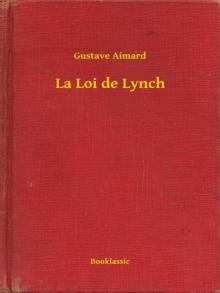 La loi de lynch. English
La loi de lynch. English The Guide of the Desert
The Guide of the Desert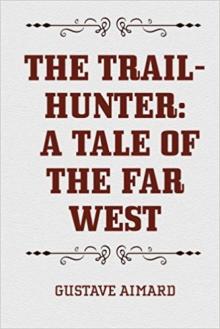 The Trail-Hunter: A Tale of the Far West
The Trail-Hunter: A Tale of the Far West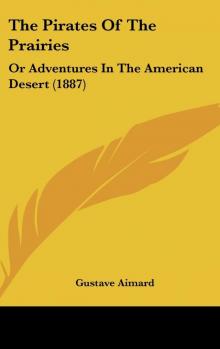 The Pirates of the Prairies: Adventures in the American Desert
The Pirates of the Prairies: Adventures in the American Desert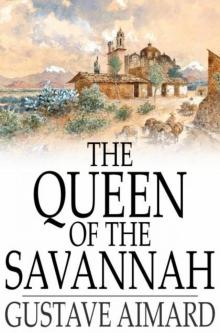 The Treasure of Pearls: A Romance of Adventures in California
The Treasure of Pearls: A Romance of Adventures in California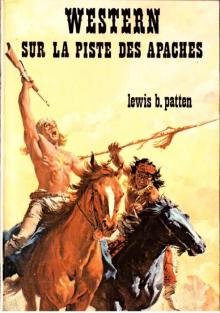 Les outlaws du Missouri. English
Les outlaws du Missouri. English Les trappeurs de l'Arkansas. English
Les trappeurs de l'Arkansas. English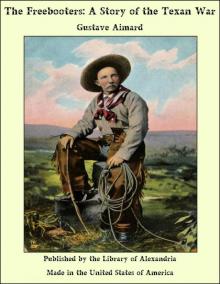 The Border Rifles: A Tale of the Texan War
The Border Rifles: A Tale of the Texan War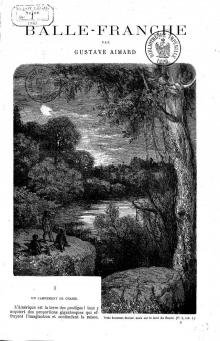 Balle-Franche. English
Balle-Franche. English The Queen of the Savannah: A Story of the Mexican War
The Queen of the Savannah: A Story of the Mexican War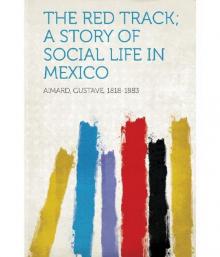 The Red Track: A Story of Social Life in Mexico
The Red Track: A Story of Social Life in Mexico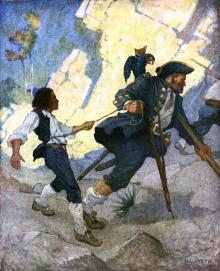 La fièvre d'or. English
La fièvre d'or. English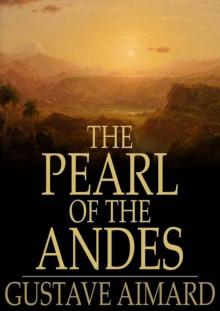 The Pearl of the Andes: A Tale of Love and Adventure
The Pearl of the Andes: A Tale of Love and Adventure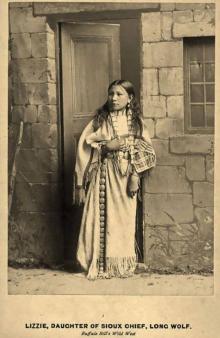 Les fils de la tortue. English
Les fils de la tortue. English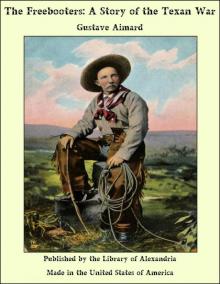 The Indian Chief: The Story of a Revolution
The Indian Chief: The Story of a Revolution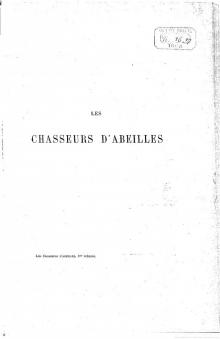 Les chasseurs d'abeilles. English
Les chasseurs d'abeilles. English The Adventurers
The Adventurers